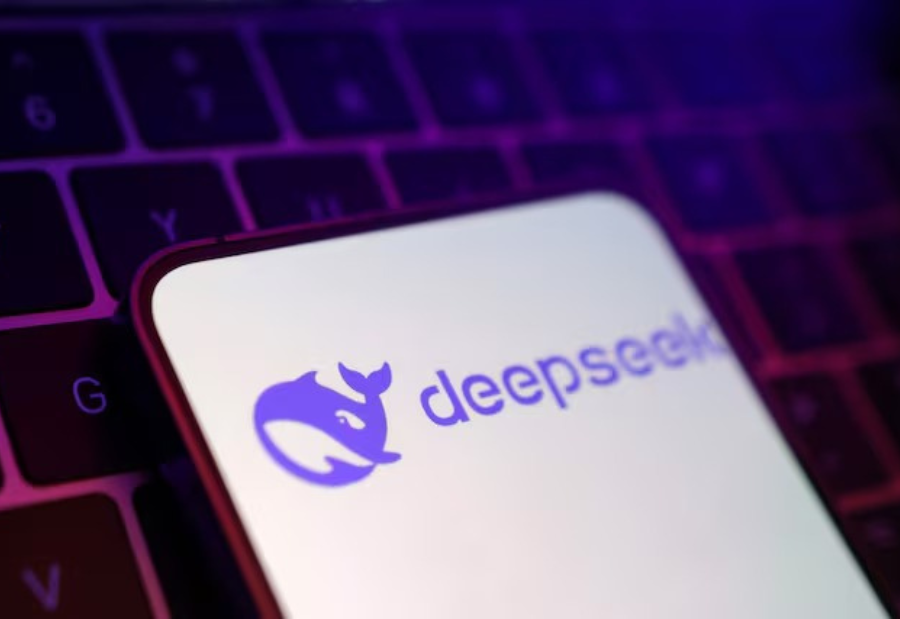Senior U.S. source told media that the AI startup DeepSeek is supporting China’s military and intelligence activities. The US official also said that the Chinese tech startup aimed to create shell firms in Southeast Asia to obtain high-end chips that are prohibited from being transferred to China by U.S. regulations.
In January, DeepSeek, a company located in Hangzhou, shocked the IT community by asserting that their AI reasoning models were on par with or superior to the top models in the US market for a fraction of the price.
“We understand that DeepSeek has willingly provided and will likely continue to provide support to China’s military and intelligence operations,” a senior State Department official told media in an interview.
The U.S. government’s evaluation of DeepSeek’s operations and ties to the Chinese government is unprecedented and coincides with a protracted trade dispute between the United States and China.
Among the allegations, the official said DeepSeek is sharing user information and statistics with Beijing’s surveillance apparatus.
Chinese legislation mandates enterprises operating in China to submit data to the government when requested. However, for the tens of millions of people who use DeepSeek every day worldwide, the implication that the company is already doing so is likely to cause privacy and other issues. Additionally, the United States continues to impose restrictions on businesses it thinks have ties to China’s military-industrial complex.
According to DeepSeek’s privacy disclosure statements, U.S. lawmakers have previously claimed that the company sends user data from American users to China via “backend infrastructure” linked to China Mobile, a massive state-owned telecommunications company in China.
Answers to inquiries concerning DeepSeek’s privacy policies were not provided.
The person said that DeepSeek has offered technical services to PLA research institutions and that the business is mentioned more than 150 times in procurement records for China’s People’s Liberation Army and other organizations connected to the Chinese defense industrial base.
The procurement data could not be independently verified by the media.
The official said that the business was using ways to get past U.S. export restrictions in order to obtain cutting-edge chips manufactured in the United States. Washington’s increasing suspicion that the skills underlying the quick ascent of one of China’s leading AI companies may have been overstated and significantly dependent on U.S. technology is reflected in the U.S. conclusions.
According to the official, DeepSeek opens new tab high-end H100 processors and has access to “large volumes” to Nvidia’s chips, a U.S. company. Since 2022 such chips have been under U.S. export restrictions owing of Washington’s worries that China may use them to develop its military capabilities or surge ahead in the AI race.
“DeepSeek sought to use shell companies in Southeast Asia to evade export controls, and DeepSeek is seeking to access data centers in Southeast Asia to remotely access U.S. chips,” the official said.
The official refused to provide any information on the shell businesses or to confirm if DeepSeek had been successful in avoiding export rules.
In addition, DeepSeek did not address inquiries concerning its purported use of shell corporations or its purchase of Nvidia chips.
In response to a question about whether the United States will impose more export restrictions or penalties on DeepSeek, the official stated that the department had “nothing to announce at this time.”
A request for comment from media was not answered by China’s commerce or foreign ministries.
“We do not support parties that have violated U.S. export controls or are on the U.S. entity lists,” an Nvidia spokesman said in a prepared statement, adding that “with the current export controls, we are effectively out of the China data center market, which is now served only by competitors such as Huawei.”
ACCESS TO RESTRICTED CHIPS
According to DeepSeek, its two AI models, DeepSeek-V3 and DeepSeek-R1, which have received high accolades from Silicon Valley executives and engineers at U.S. tech companies, are comparable to OpenAI and Meta’s most sophisticated models.
However, AI specialists have voiced doubt, claiming that the startup’s claimed $5.58 million for processing power was probably considerably less than the actual expenses of training the models.
According to earlier reports from Media, US authorities were looking into whether DeepSeek had access to prohibited AI chips.
According to three people with knowledge of the situation, DeepSeek purchased H100 chips after the United States prohibited Nvidia from selling them to China. However, the quantity was significantly less than the 50,000 H100s that the CEO of another AI startup had asserted DeepSeek owned in a January interview with Media.
The quantity of H100 chips that DeepSeek possesses was not confirmed by Media.
“Our review indicates that DeepSeek used lawfully acquired H800 products, not H100,” an Nvidia spokesman said, responding to a media query about DeepSeek’s alleged usage of H100 chips.
Three persons were charged with fraud by Singapore in February in a case that local media have connected to the transfer of Nvidia’s cutting-edge processors from the city-state to DeepSeek.
Additionally, China has been accused of figuring out how to remotely employ sophisticated U.S. semiconductors.
Even though it is illegal to bring cutting-edge Nvidia processors into China without a license, Chinese businesses are still able to use those chips remotely in data centers located in non-restricted nations.
There are two exceptions: either the exporter of the chips knows that the Chinese business is utilizing its chips to assist build weapons of mass destruction, or the Chinese company is on a U.S. trade blacklist.
As of now, U.S. authorities have not put DeepSeek on any trade blacklists and have not claimed that Nvidia was aware of DeepSeek’s collaboration with the Chinese military.
Last week, Malaysia’s commerce ministry announced that it was looking into whether any domestic laws or regulations had been broken and whether an unidentified Chinese business operating in the nation was employing servers with Nvidia processors for training massive language models.
Also read: Viksit Workforce for a Viksit Bharat
Do Follow: The Mainstream formerly known as CIO News LinkedIn Account | The Mainstream formerly known as CIO News Facebook | The Mainstream formerly known as CIO News Youtube | The Mainstream formerly known as CIO News Twitter |The Mainstream formerly known as CIO News Whatsapp Channel | The Mainstream formerly known as CIO News Instagram
About us:
The Mainstream formerly known as CIO News is a premier platform dedicated to delivering latest news, updates, and insights from the tech industry. With its strong foundation of intellectual property and thought leadership, the platform is well-positioned to stay ahead of the curve and lead conversations about how technology shapes our world. From its early days as CIO News to its rebranding as The Mainstream on November 28, 2024, it has been expanding its global reach, targeting key markets in the Middle East & Africa, ASEAN, the USA, and the UK. The Mainstream is a vision to put technology at the center of every conversation, inspiring professionals and organizations to embrace the future of tech.




